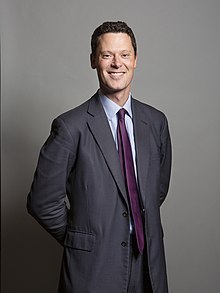| United Kingdom Secretary of State for Justice | |
|---|---|
 | |
| Ministry of Justice | |
| Style | Justice Secretary (informal) The Right Honourable (within the UK and Commonwealth) |
| Type | Minister of the Crown |
| Status | Secretary of State |
| Member of | |
| Reports to | The Prime Minister |
| Seat | Westminster |
| Nominator | The Prime Minister |
| Appointer | The Monarch (on the advice of the Prime Minister) |
| Term length | At His Majesty's Pleasure |
| Precursor | Secretary of State for Constitutional Affairs |
| Formation | 9 May 2007 |
| First holder | The Lord Falconer |
| Salary | £159,038 per annum (2022)[1] (including £86,584 MP salary)[2] |
| Website | Official Website |
| This article is part of the series: Courts of England and Wales |
| Law of England and Wales |
|---|
 |
The Secretary of State for Justice is a secretary of state in the Government of the United Kingdom, with responsibility for the Ministry of Justice. The incumbent is a member of the Cabinet of the United Kingdom. Since the office's inception, the incumbent has concurrently been appointed Lord Chancellor.
The officeholder works alongside the other justice ministers. The corresponding shadow minister is the shadow secretary of state for justice, and the performance of the secretary of state is also scrutinised by the Justice Select Committee.[3]














